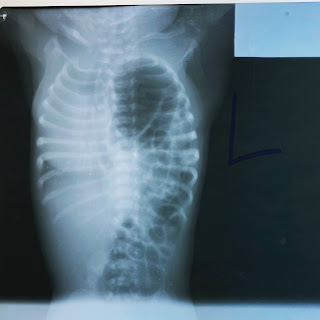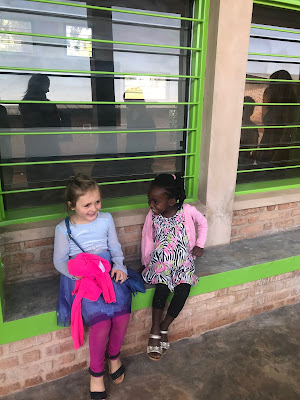(by Matt)
If you have ever been to Kibuye and attended family worship on Saturday evening, you have probably said the following words as part of the liturgy: “Thank you (Lord) for leading our steps even when we do not understand.” Lately, every time I read and speak these words they resonate with me a lot. I guess it is because there is a lot I do not understand about life in Burundi, the world, 2020 and its series of crises.The year 2020 has been a very challenging year. It has showcased the vulnerability of mankind, our exposure to risks and the possibility to lose the things that give us a sense of security and safety such as democracy, economic stability, health, freedom, and fellowship with others…
While the impact of these challenges has been gentle in Burundi this year, I am still struggling with the sense of vulnerability that this uncertainty has revealed. I would like to shield myself against the possibility of losing anything I possess.
My work in Kibuye as the construction manager generally puts me in a position of authority. By default I am called to take actions and to make decisions that are executed immediately by those who are under my authority. My natural tendency in this position is to suppress any kind of vulnerability. But as Andy Crouch puts it in his book Strong and Weak, whenever authority and vulnerability are not held together, the result is withdrawal (no authority and no vulnerability), exploitation (authority without vulnerability) and suffering (vulnerability without authority).
I do not understand everything about 2020, but in my role as construction manager I have been learning that it is good to embrace both authority and vulnerability, because that is the way to flourishing. Here are some examples of how this principle has played out in my work:
- When the temptation is to withdraw, remember you are part of the body. I have been learning that I am not a mercenary or expert sent to save/help Kibuye but rather part of the body of Christ sent to be with my brothers and sisters in Burundi so that together we can serve and take care of the part of the body that is hurting or needs my gifts. Being then doing. Being for me has come with personal and emotional involvement; I have been trying to be more deeply embedded in relationship and mutual dependence with the construction crew which makes me vulnerable in a way. For this reason the team has welcomed me as one of them but also as their leader. They started trusting me more than they did before.
When we were finishing the kindergarten building, the director of the school approached me and told me that the school had decided to paint all exterior beams and columns of the kindergarten in a cream color. He did not expect any pushback from me but compliance. It was a simple request from the director who runs the school, a request that had no structural implication I needed to be worried about. It would have been easy to just paint the building and move on. But that would have been withdrawal. As a member of the community I was aware of the challenges we had with maintenance because of the lack of training, human resources and funds. It was my responsibility as an architect and a member of the community with authority to deliver a building that will serve the school and the community for years to come. I told the director that we were not going to paint exterior beams and columns because it would require regular maintenance, which the school could not afford. Instead I had designed it to be aesthetically pleasing and low maintenance. He was very disappointed in me but I thought it was worth pushing for. Now after two months of rain and mud the building still looks clean
Kindergarten building 
View from the access road - When the temptation is to act without vulnerability (exploit), find ways to stay in relationships. Dependence on my team exposes me to the risk of failure and disappointment but it also empowers my team with the authority to take actions that could affect me directly. At times the authority given is misused, but most of the time it is used in a meaningful way. If my team or the project fails, I fail; if they succeed, their success is also mine. I do not always like this kind of vulnerability but God has been teaching me to embrace it.
A few weeks ago, I had to get 4 self-contained rooms at the Octaplex ready for 4 new doctors to move in. I relied on and trusted a local contractor to make all the furniture for the rooms but in the end, they let me down because they couldn’t meet our deadline. I felt vulnerable and suffered because of their actions. If I had not trusted them in the first place maybe I would not have felt disappointed and hurt, but I would have reinforced a negative bias about Burundian culture and contractors. Maybe I trusted them because I started to learn the meaning of being, accepting the other who is different as my brother or sister; or maybe I was learning that change, transformation and healing come when we are together in a relationship. We trust and get hurt but we also use the authority we do have (authority is our “capacity for meaningful action” according to Crouch) to try again; and we hope that the power of love that comes from being together will change the other and us. Although I ended up doing the work with my team to meet the deadline, we kept the relationship with the local contractor and contracted him for other work hoping that they will be more reliable in the future.
The Octaplex - When the temptation is to suffer out of fear of shame, take action together. I am learning that to be culturally appropriate does not mean to withdraw from taking meaningful action in order to avoid the possibility of loss or hurt. Instead, I think it means to communicate clearly in a respectful manner about the action that needs to be taken, while acknowledging that something valuable might be lost in the process.
Last year, concrete test results for the paediatric building ramp were very bad. As a consequence, part of the ramp had to be demolished and recast. This was a very sensitive matter for leaders and members of the construction team. In this context, to demolish part of the ramp meant to accuse someone publicly of being incompetent at his or her work, a shameful rebuke in a shame-honour culture. I remember being asked several times if there was another course of action that would not require any demolition, but there was none. We had to demolish the ramp but we also were exposed to the possibility of hurt and a broken relationship with some leaders and members of the construction team. We decided to wait and demolish at a later date when everyone had come to peace with the decision. It was clear that no one wanted the ramp to endanger people’s lives by not taking care of the issue. Instead of using culture as an obstacle to good decision making and an excuse for inaction, we took action together and overcame shame and potential suffering.
Paediatric Ward with the whole team 
View of the ramp
I hope that in my journey I will gain more understanding of these words “I take pleasure in my weaknesses, and in the insults, hardships, persecutions, and troubles that I suffer for (the body of) Christ. For when I am vulnerable, then I am strong,” 2 Corinthians 12:10






































